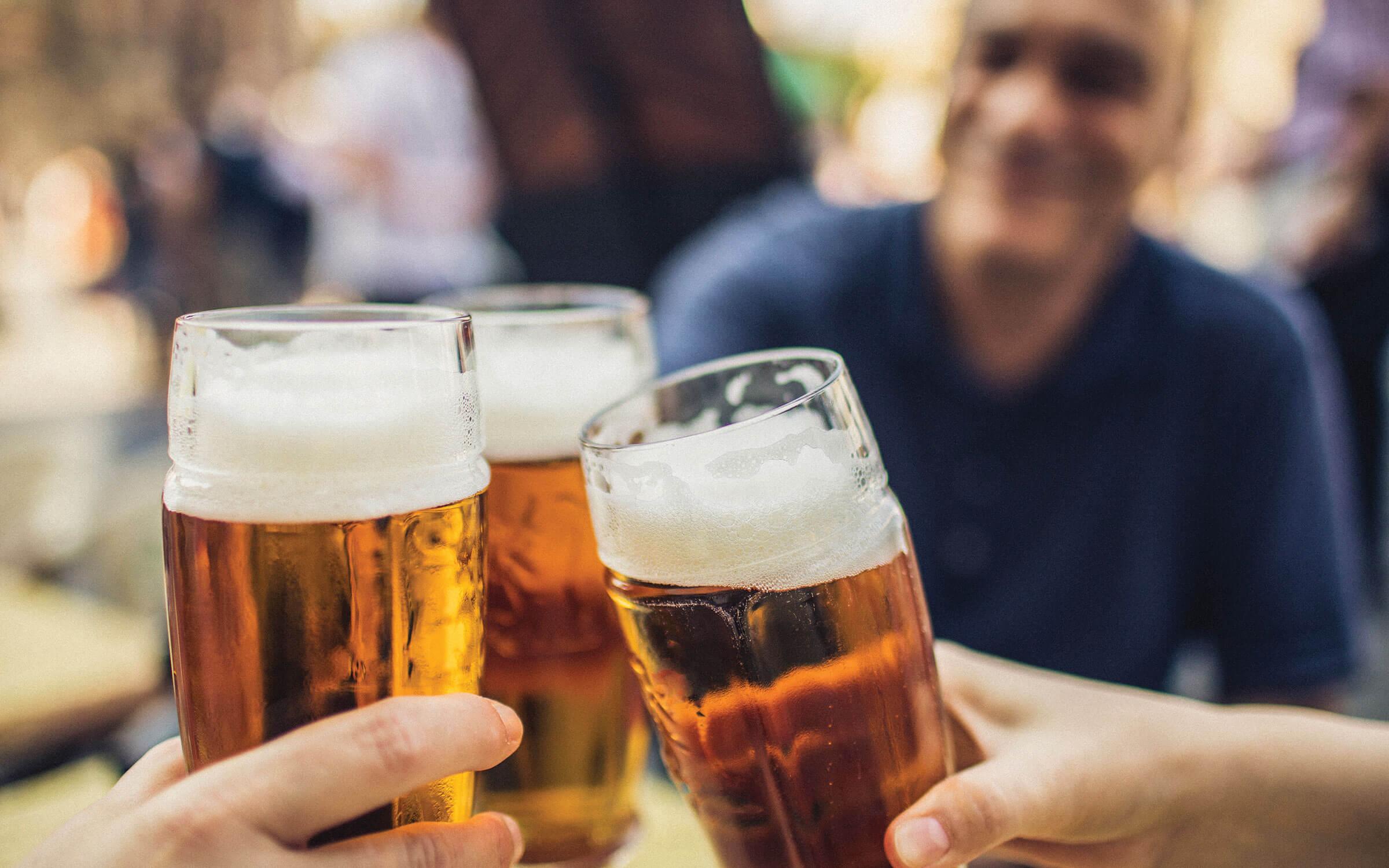 At first glance, the good people of Central Europe seem rather imperturbable.
At first glance, the good people of Central Europe seem rather imperturbable.
They are, after all, a people who collectively put up with the Habsburgs for nearly 400 years; who are wholly comfortable with their international image as lovers of sausage and beer; and who routinely revel in volksmusik that so rankles the foreign ear, it’s entirely unexportable.
But don’t let the breezy façade fool you: behind their lackadaisical lifestyle lurks a minefield of social faux pas that could confuse even the most appreciative pilsner lover.
Herein, a brief guide to the social mores of Central Europe that will help you ingratiate yourself to the locals (or at least avoid putting your foot in your mouth).
Curious Courtesies:
Your Guide to the Social Mores of Central Europe
The Greeting
 In Austria, an upbeat Grüß Gott (meaning “Greet God”) is the way to go. This same expression will pass muster in Bavaria, where a casual servus (“hello”) can also be used, but is most definitely not acceptable in the rest of Germany, where guten morgen/tag/abend (good morning/day/evening) is de rigueur.
In Austria, an upbeat Grüß Gott (meaning “Greet God”) is the way to go. This same expression will pass muster in Bavaria, where a casual servus (“hello”) can also be used, but is most definitely not acceptable in the rest of Germany, where guten morgen/tag/abend (good morning/day/evening) is de rigueur.
While in the Czech Republic, focus on the handshake, as this must be strong and not watered down with other gestures. Think two statues crushing hands and you’re on the right track. If you are doing this in someone’s house, let only your eyes glide to your feet to ensure that you remembered to remove your shoes.
When in Hungary, first remove your gloves, then engage in a short and firm shake. Whatever you do, do not touch someone’s elbow or pull them in close during the handshake process.
German’s don’t engage in superfluous touching either, something that is extended to their belongings – no man hugs while giving someone’s 7-series BMW a loving pat on the hood.
National Identities
Austrians are Austrians and most definitely not Germans. The Czechs, meanwhile, live in Central Europe and are nowhere near Eastern Europe – don’t make the mistake of insinuating otherwise.
Nationalism in Germany is sort of taboo, and many Germans prefer to identify with their home state or region rather than with Germany. However, this generally goes out the window while cheering on the home team during the World Cup (except, perhaps, during this year’s games against Mexico and South Korea).
Until 1918, Hungary was twice its current size. Still a sensitive topic, best avoided by suggesting to your interlocutor that you both have another palinka (fruit brandy).
The Meal
 In Austria, you may trigger a scandal by not shouting mahlzeit (literally: “meal time”) when you enter a restaurant.
In Austria, you may trigger a scandal by not shouting mahlzeit (literally: “meal time”) when you enter a restaurant.
Germans prefer a more subdued guten appetit and are mortified to learn that English speakers don’t have a similar expression. But this shortcoming is soon forgiven, and they will happily share space at their table as long as you first ask, Ist hier frei? (This seat taken?)
The Czechs have a more relaxed approach, as long as you have a large beer in hand, and, when squeezing through crowded spaces, face the people you are passing rather than turn your back.
Meals in Hungary – that is correct, refrain from making the joke – are trickier. They must start with a soup and are frequently interspersed with shots of palinka.
This adds a layer of difficulty when trying to remember rules of etiquette. Chicken can be eaten by hand, but don’t even think of raising the fork to your mouth with the rounded side facing up.
You will immediately be challenged to a duel, as you will if you bite unbuttered bread instead of ripping it, or begin to eat before everyone in the group has been served.
Please, enjoy your meal.
Going for a Drink
 In the Czech Republic, the man enters the pub or restaurant first, and also leaves first. You never know what riffraff you may find lurking in or outside.
In the Czech Republic, the man enters the pub or restaurant first, and also leaves first. You never know what riffraff you may find lurking in or outside.
It is also considered rude to have less than a dozen large beers if you are out with friends. Five dollars should be enough to pay for these. (Boy do I love the Czech Republic.)
If you find yourself sitting under a bell in a German bar, refrain from using it. Ring it and you just bought everyone in earshot a drink.
Don’t miss out on the lovely Austrian traditions of the absacker, the very very very last drink of the evening, or the summer spritzer. For this you pour generous amounts of sparkling water into white wine, then proceed to spend the entire summer slightly buzzed but never drunk. (I believe they also have this tradition in the Hamptons, though I’ve never been.)
Clinking glasses of beer was banned in Hungary until 1998. Why? Because after the aforementioned Habsburgs defeated the Hungarian revolution in 1848, they celebrated by raucously cheersing with their beer glasses, prompting the Hungarians to boycott the action for 150 years.
Today it’s a matter of personal preference, but feel free to avoid this delicate situation entirely by ordering a delicious glass of red from the Tokaj or Eger wine regions.

